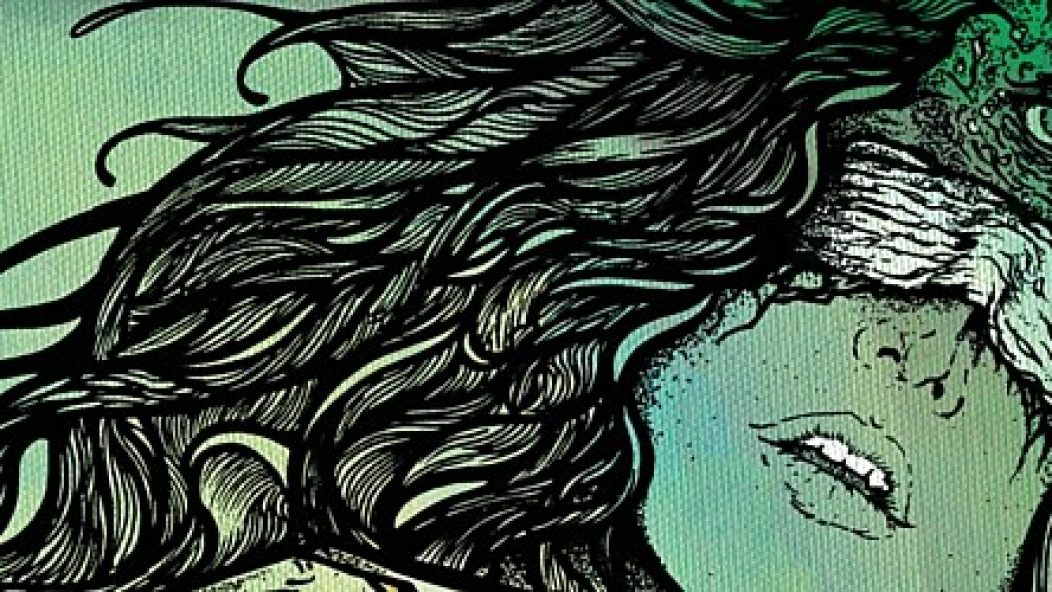
Dwellers - Pagan Fruit

…
Not that you asked, fair reader, but here’s a one-line autobiography: I am a person who, among other things, occasionally writes about music for various public outlets. Here’s one very important addendum, though:
I am not doing this for you.
Not really, at least. And I’m not trying to be dismissive or confrontational, either. It’s just that this thing I do sometimes? Well, I do it because I like doing it. It’s a primarily selfish, even narcissistic thing.
The only reason I bring it up here is because it’s also worth remembering: All these bands you love — bands whose records you clutch to your body with a desperate, impossible, ridiculous, admirable love — they aren’t playing for you, either.
More to the immediate point, then: Dwellers are not playing for you. Pagan Fruit, the Salt Lake City group’s glistening new album, is not a statement carefully crafted to intervene strategically in some meta-musical conversation. These songs are not rejoinders to anyone else’s songs, nor ciphers to be deployed in the service of my own dime-store epistemology.
I’m writing this thing that is not about you because I need to remind myself that this album is not about me.
Dwellers’ gloriously organic fusion of recent Swedish analog amp worship (e.g., Graveyard, Witchcraft, Kadaver, Spiders) with the sun-bleached, tumbleweed Americana of Across Tundras is not a sly nudge to our indefatigable editor’s claim (re: Iceland) that globalization has yet to erase all pockets of regional curiosity. The raucous yet refined swagger of Pagan Fruit was almost assuredly not designed to thumb its nose at the pedant’s game of “metal/not metal,” though Dwellers’ rhythm section are well-versed in tapdancing the hell out of those bothersome fence posts, having spent time in fellow SLC travelers SubRosa. This excellent album — this transparently tactile album, this rambunctiously Western album — is really none of these damn things that I keep trying to make it be.
It is, in the final analysis, a collectively selfish conjuring by its makers: “Hey! Look what we can do!”
And friends — you who are here for your own reasons — let me tell you that this is as it was, and should be, and will be again. The nine songs on Pagan Fruit are stuffed to the absolute seams with endlessly warm tones to torpedo your torpor. The band’s effortless blending of heavy blues riffing, Kylesa-lite stomping and hollering, piquantly soulful vocals, and concisely mind-expanding psych excursions means the album should easily appeal to fans of other modern keepers of the peculiar soul such as Giant Squid, Grayceon, and Royal Thunder. Hell, there’s even some stuff on here that sounds like the Murder City Devils getting punched in their noses in slow-motion and feeling super chill about it.
What ends up defining the album is the careful balancing of mountain-grade power trio sonics and composition rife with inspired instrumental accents including cello, harmonica, and various organs. “Return to the Sky” is a real brain-fryer, due to the way its superlative vibraphone vamping gives the song the feeling of Bobby Hutcherson supporting Neil Young in the mid-’70s. The album closer, “Call of the Hallowed Horn,” is another live wire flicked right at the listener’s amygdala: It opens and closes with a desert Sabbath psych session, but then the middle section opens up into a beautifully nervy solo fugue. It’s one of those rare jams that lasts nearly nine minutes, but could easily have carried on for 20 without drawing complaint.
Because these songs were not written for you, you have the freedom to make them useful. Take them with you or leave them behind; let them speak to you in their own language, or translate them to your own tongue; sing them alone, or sing them with friends. That’s the kind of radical individualism worth building a community around.
…
…










